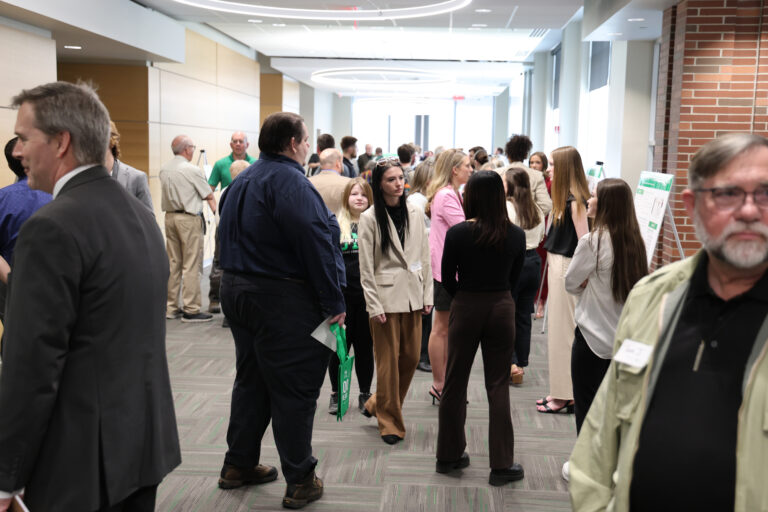Disruptive times
Higher ed futurist focuses on navigating change while hitting on hot-button issues of the day

We live in disruptive times, said Peter Lake.
The law professor and higher education policy expert was on campus July 31 to speak on higher education, free speech and academic freedom to an audience from UND as well as leaders and staff from colleges and universities across the state and the North Dakota University System.
“There is disruption coming from every direction,” he said.
A professor of law, Charles A. Dana chair and director of the Center for Higher Education Law and Policy at Stetson University College of Law in Gulfport, Fla., Lake spoke about national trends and how they could affect higher education.
Federal policy changes, campus protests, government regulation, skyrocketing student loan debt, consumer advocacy, Title IX and the First Amendment are all possible disruptors, he said.
For example, he sees implications for Title IX, the 1972 law that protects people from discrimination based on sex, as advocates press for increased respondents’ rights.
“If Title IX lets you prove someone harms you, is there a process to clear your name?” Lake asked.
What is truth?
“What is truth?” Lake asked. “And who has the right to determine truth?”
We have entered the age of advocacy, he said. “Everyone is a publisher now. The cell phone is one of the most disruptive things to happen to colleges. Before then, you needed a Ph.D. to share knowledge.” Now, “weird ideas are more interesting.”
“Colleges are competing with this,” he said.
The really disruptive thing is that the people who are attacking colleges went to college, Lake said. “We created this.”
The rise of the advocacy and consumer culture has shifted student beliefs, he explained. “Instead of ‘one for all and all for one,’ students are purchasing an experience. The era of deference to higher education is no more.”

Factors in disruption
Students have huge student loan debts, Lake said, adding that it’s becoming a major issue that’s shifting the tone of politics as federal and state governments reduce subsidies to colleges and universities and shift the burden to students.
“Higher education costs too much,” Lake said, adding that some universities have begun food programs for hungry students who skip meals to pay tuition. “People are starving and don’t admit it,” he said.
Another disruptive factor is the advent of online degrees. “It’s a life-learning experience vs. being efficient,” Lake said, noting that online degree completion and satisfaction rates are low, and that interaction is needed for many programs.
Other potential disruptors include litigation, protests, free speech, and fake news.
Regarding professors who share views on social media, Lake said he warns people about publishing content and viewpoints too quickly. If people find it offensive and attack, he warns universities to be careful about punishing content and viewpoints. “It backfires, even at private schools.” Instead, he recommends setting expectations so people know the boundaries. And, he said, however distasteful the post may be, it is still free speech and protected by the First Amendment.
“Students want to be safe and feel safe,” Lake said. “They argue for free speech, but what they really want is freedom from speech.”
And protests can happen at anytime and anywhere.
Navigating disruption
To navigate disruption, Lake said, we must understand the underlying causes, practice prevention instead of intervention, and show leadership. A university must stay true to its core mission and policies, he said.
“Everyone tells you what your identity should be,” he said. “Make respect for the law a priority and teach.”
Lake also recommends looking at the spirit and rule of law.
“We are using the law as a weapon. Instead, what is the reason behind the law?”
“With all the Title IX controversy,” Lake said, the law has worked. “Women are in positions as never before.”
Higher education can improve on the marketplace of ideas, Lake said. The academe can articulate new issues and reimagine governance in the face of challenges to freedom of speech.
“We need to fight for education and academic freedom,” Lake said.


